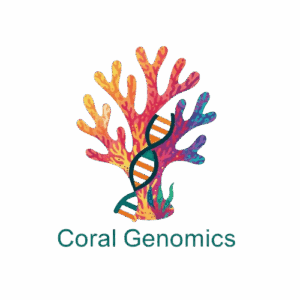The Coral Genomics Study is hinged on four interconnected components that together enhance our understanding of corals, enhance conservation efforts and build local research capacity.
1. Coral Taxonomy
Validation and Delineation of Coral Species Boundaries in Kenya
Kenya’s coral reefs host a remarkable diversity of species, yet many corals remain poorly defined due to their high phenotypic plasticity. Traditional identification based on shape and structure often leads to misclassification, especially for species that look alike or change with environmental conditions.
Through genomic sequencing, we aim to:
- Accurately validate and delineate coral species boundaries.
- Detect cryptic species that are invisible to morphological classification.
- Refine coral taxonomy in the Western Indian Ocean, providing a stronger foundation for biodiversity monitoring and reef management.
- This work ensures that conservation policies and restoration programs are based on robust, science-driven species definitions.
2. Population Genomics
Understanding the Genetic Structure of Coral Populations along the Kenyan Coast
Coral populations are shaped by ocean currents, habitat fragmentation, and environmental stressors. By studying genetic variation, we can better understand how populations are connected and how they adapt to change.
Using advanced genomic approaches such as low-coverage whole genome sequencing (lcWGS) and RADSeq, this component investigates:
- Levels of genetic diversity within and between coral populations.
- Patterns of connectivity across reef systems along the Kenyan coast.
- Genetic signatures of resilience and adaptation to stressors like warming seas.
The findings provide crucial insights for marine protected area design, coral restoration efforts, and long-term conservation strategies.
3. Coral Species Field Identification Kits
Development and Validation of Field-Ready Tools
A key challenge for conservationists and reef managers is the ability to reliably identify coral species in the field. To bridge this gap, we are developing field-ready identification kits that integrate genomic data with user-friendly tools for practitioners.
These kits will:
- Simplify species identification for non-specialists.
- Provide reliable, validated markers for distinguishing closely related species.
- Enable reef managers, NGOs, and citizen scientists to participate in coral monitoring.
By making coral identification accessible, we strengthen both scientific research and grassroots conservation efforts.
4. Capacity Building and Partner Engagement
Strengthening Local Expertise and Sharing Knowledge
Science is most impactful when it is shared. This component focuses on building human and institutional capacity in coral genomics research within Kenya and across the region.
We achieve this through:
- Recruiting and mentoring research students in genomics and bioinformatics.
- Writing and standardizing Standard Operating Procedures (SOPs) for coral sampling, sequencing, and analysis.
- Deploying developed tools and workflows to partners, NGOs, and government stakeholders.
- Hosting workshops, training sessions, and collaborative exchanges.
By investing in people and partnerships, the project ensures that genomic tools and knowledge remain sustainable, accessible, and impactful beyond the life of the project.
